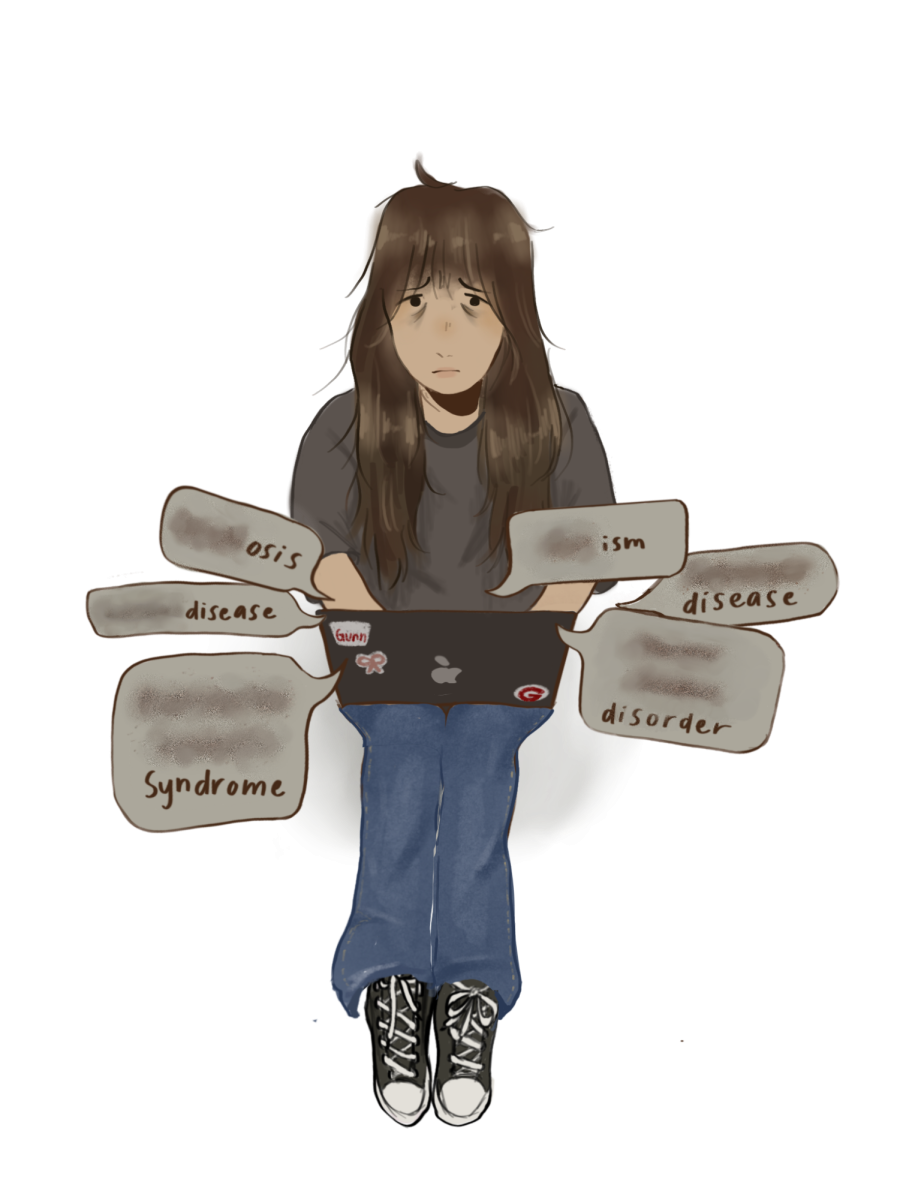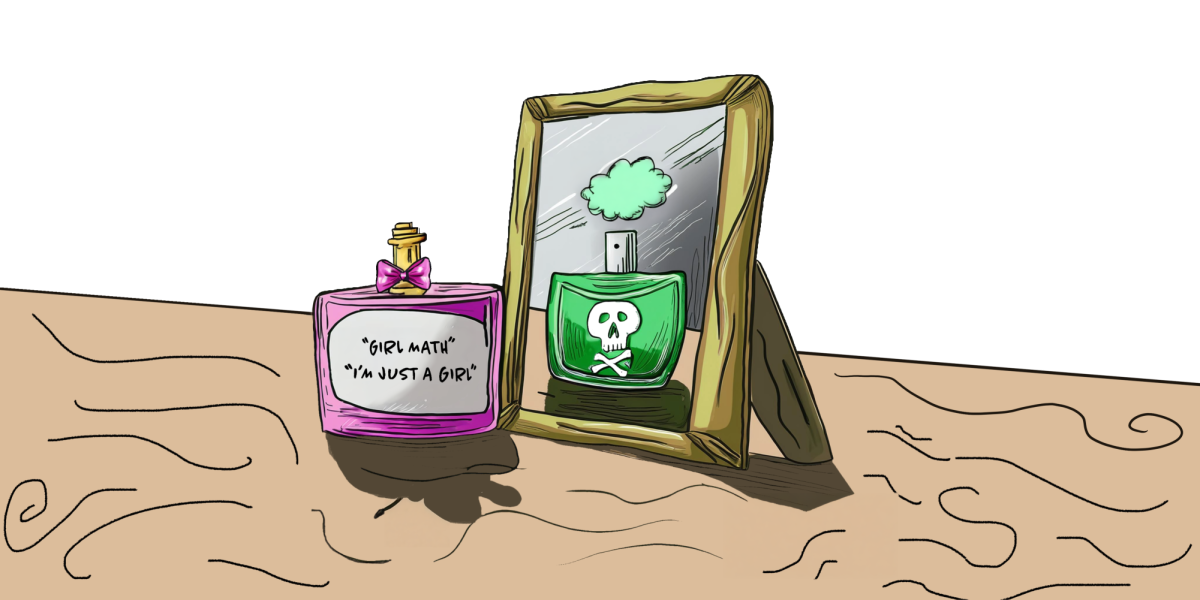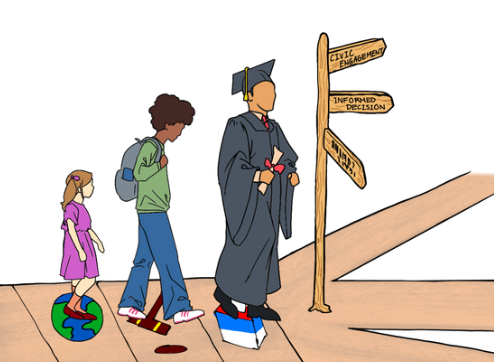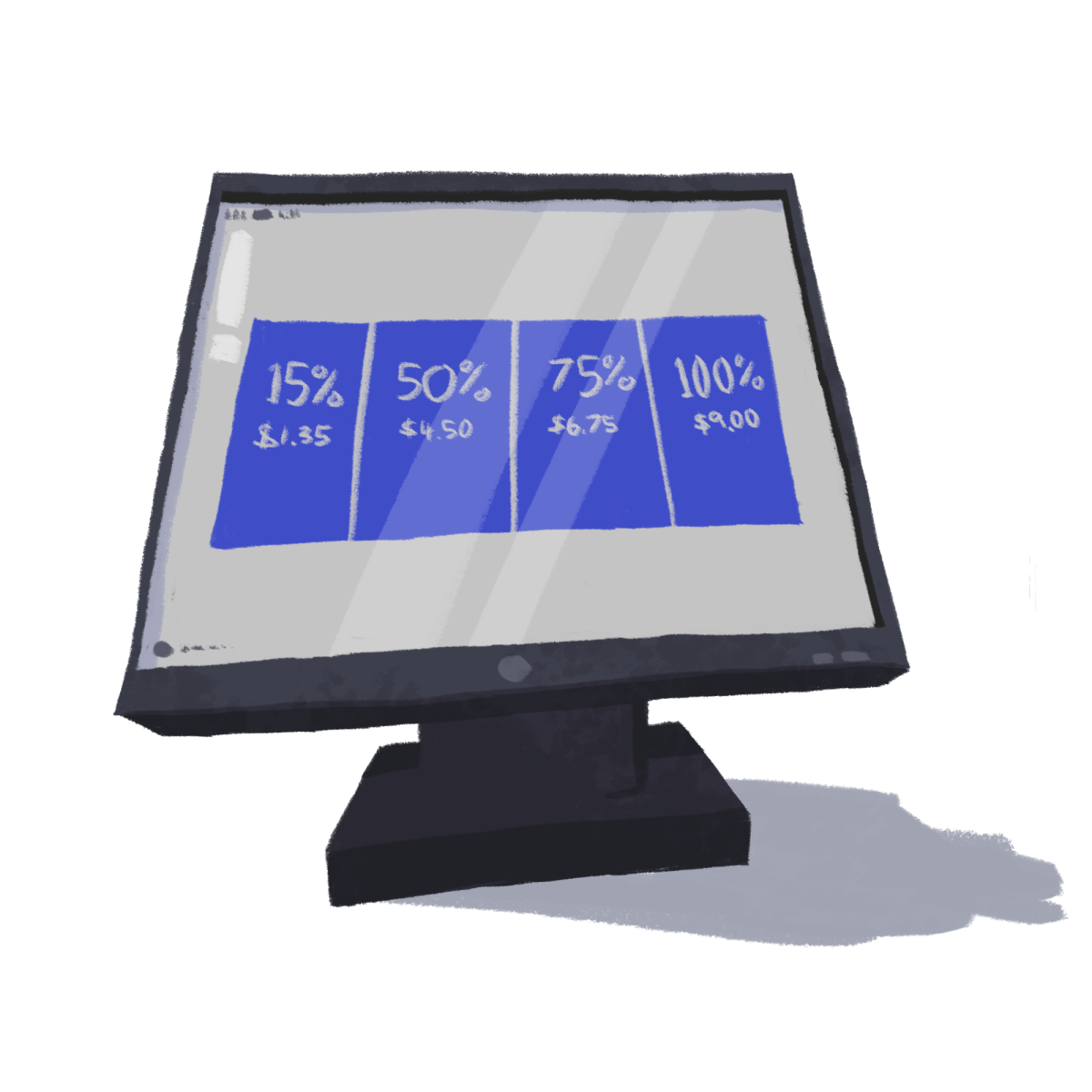Growing up in the digital age, Gunn students are constantly surrounded by technology — it opens up a seemingly infinite world of entertainment, information and opportunities. For many parents, however, the online world adds another dimension of worry to the already arduous process of raising children. Although setting expectations for teenagers is important, parents should not track their teenagers’ online behaviors or block apps and websites because these practices are often ineffective: They damage trust and hinder teens’ development of self-control and responsibility.
Many parents are aware of the risks of the internet: A December 2022 study from the Pew Research Center found that a majority of parents with children aged 13 to 18 are at least somewhat worried about their children’s online activity, with 71% concerned about explicit content, 70% concerned about large amounts of time spent online and 59% concerned about peer pressure. However, the way that parents choose to combat these dangers vary, with some choosing a hands-off approach and others adopting more stringent regulations.
Some parents, concerned that their children are being exposed to inappropriate content, track online history and block specific social media and entertainment platforms, among other websites. Although blocking apps may give parents the illusion that they are protecting their children, this form of monitoring does not reduce — and can even exacerbate — the online dangers that children face. For already rebellious teenagers, imposing app or website bans to curb online activity may have the opposite effect, since children become more likely to attempt to hide their usage from their parents. This tendency is explained by the forbidden fruit theory, which says that there is a human tendency to want something more if it is off-limits or challenging to obtain. Teens’ hiding their online activity lead to an unhealthy relationship with technology and sever trust, since teenagers can feel as though their parents have a lack of appreciation for their privacy.
Online tracking also prevents teenagers from developing responsibility. If teenagers are only motivated by parental rules or surveillance, they are unprepared for a future where their guardians are less involved.
This doesn’t mean that parents should leave their children entirely to their own devices. When teenagers, who are still developing judgment skills, are left to explore the internet freely without parental regulations, they can form unhealthy habits that lead to lifelong consequences. Rather than relying on online tracking or blocking, however, parents can model acceptable behaviors and help their children become aware of the dangers that exist online through open discussion.
They can also set rules and consequences relating to online behavior and limit screen time. These alternatives could help teenagers feel as though their opinions are heard and encourage them to learn more about online safety. Teenagers also resist restrictions less when they are part of the conversation and have the opportunity to understand their parents’ point of view.
Additionally, limiting screen time through parental controls or setting no-technology zones can counter technology overuse, bringing teenagers out of the online world into reality. With clear communication from both sides, these practices set teenagers up for a healthy childhood without infringing on their rights.
As schools increasingly incorporate technology as a learning tool, they should also support parents in educating students on online safety, especially for younger students who are being introduced to online resources for the first time. Technology in itself is not inherently good or bad. Thus, as children mature and change, parents should be observant and respond accordingly.
There are bound to be obstacles in parenting with technology. However, by establishing connection and understanding, parents can help their children develop healthy relationships with technology and with their community.





















